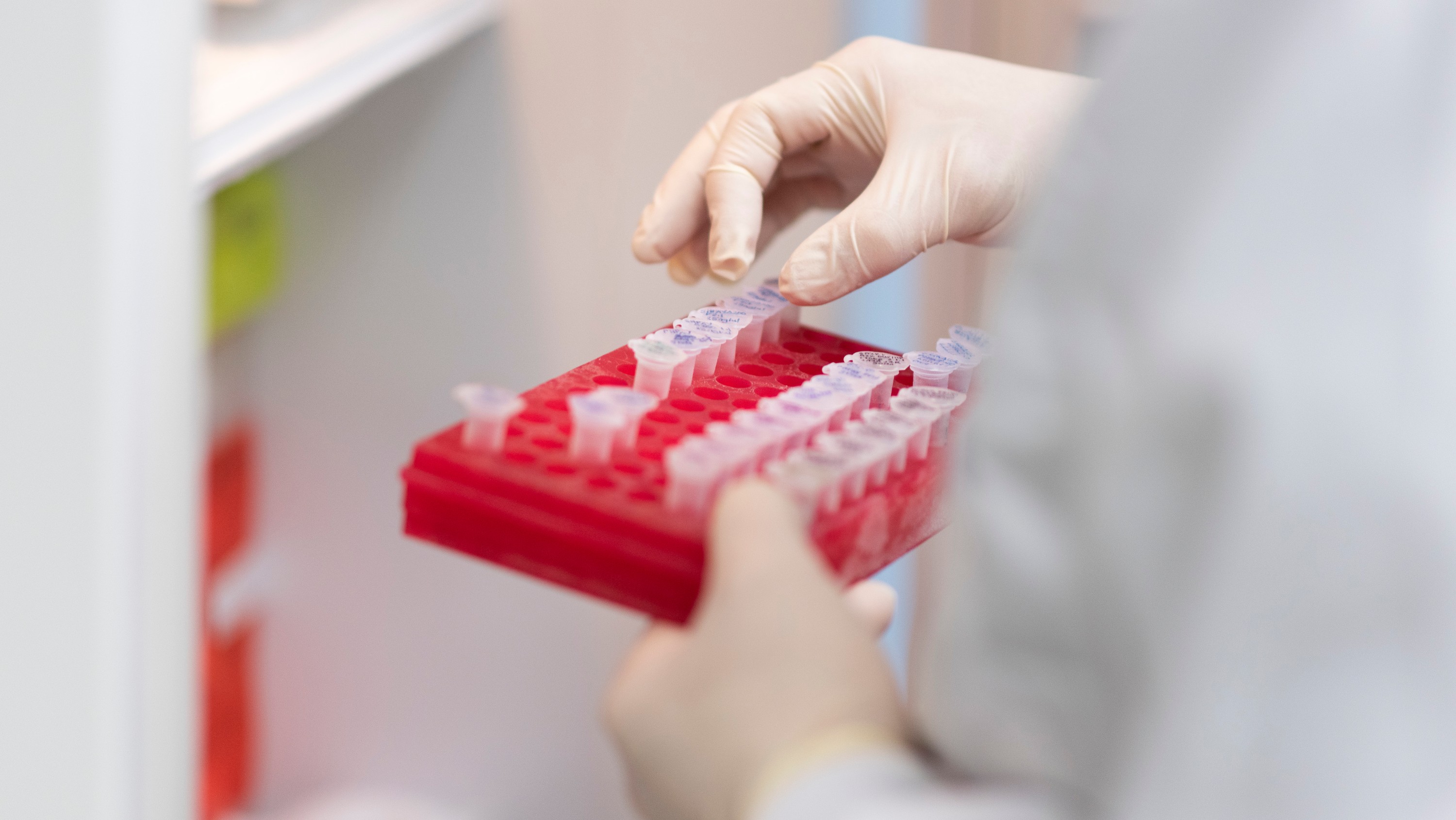The University of Alberta will take the lead on a new research hub for pandemic preparedness in recognition of the university’s cross-disciplinary strength in developing tools to fight COVID-19 and other potential pandemic diseases.
“To continue to protect Canadians and to build a resilient biomanufacturing ecosystem, our government is taking every action possible to be equipped with the best tools,” said François-Philippe Champagne, minister of innovation, science and industry, while announcing five hubs funded by the Canada Biomedical Research Fund today.
“We’re proud to foster the research needed to produce cutting-edge discoveries and products in our very own labs that will help us build a stronger, more robust life sciences sector that responds to the needs of Canadians for decades to come,” Champagne said.
The PRAIRIE Hub for pandemic preparedness brings together experts, research facilities and training programs from the U of A as lead institution with major partners at the University of Calgary, University of Saskatchewan and its Vaccine and Infectious Disease Organization, and the University of Manitoba. The University of Lethbridge, University of Regina and other post-secondary institutions, Canada’s National Microbiology Laboratory, and industry partners are also involved — all in a co-ordinated effort to accelerate the development and commercialization of vaccines, antivirals and diagnostics.
“Knowing what we know from past pandemic outbreaks including SARS, MERS and SARS-CoV-2, there's a big push to be prepared for the next pandemic,” said hub executive scientific director M. Joanne Lemieux, professor in the Faculty of Medicine & Dentistry and a member of the Li Ka Shing Institute of Virology.
“The research hubs in biomanufacturing will enable basic research and then bridge the gap in translation to bring some of these small molecules, biologics, therapeutics and diagnostics to market more quickly so that we're ready for the next outbreak or pandemic,” Lemieux said.
The U of A will receive $2 million over four years to establish the PRAIRIE Hub, with access to a potential $570 million in available federal funding for proposals to translate research and knowledge into tangible results.
“The PRAIRIE Hub is a proactive undertaking that recognizes the most pressing problems cannot be solved in isolation,” said Bill Flanagan, president and vice-chancellor of the University of Alberta. “The U of A is proud to serve as the leading institution that brings together some of Canada’s brightest minds to advance solutions so that we are prepared to meet challenges here at home and on a global scale.”
“This investment in the PRAIRIE Hub allows the University of Alberta and our pan-Canadian partners to accelerate our interdisciplinary excellence in pandemic preparedness,” said Aminah Robinson Fayek, U of A vice-president of research and innovation. “Together, we will bring to bear Canada’s world-class expertise to safeguard the world against potential pandemic pathogens — now and into the future.”
Building on a sound track record
Lemieux, a biochemist and X-ray crystallographer by training, said the U of A was chosen as the lead institution for the PRAIRIE Hub because it has the largest consortium of virologists in Canada within the Li Ka Shing Institute of Virology, along with experts in medical microbiology and immunology and infectious disease, world-leading artificial intelligence researchers and a track record of creating startups and building partnerships with industry. The U of A is also home to Alberta Cell Therapy Manufacturing, a large facility purpose-built to meet the highest standards required for manufacturing cell-based therapies.
“We have a pipeline of chemists, biochemists and virologists, all here at the U of A, so we're able to work closely together to develop antivirals,” said Lemieux, whose lab worked with others to publish at least six papers focused on slowing the SARS-CoV-2 replication mechanism during the COVID-19 outbreak.
“I take a lot of pride in the collaborative network here at the U of A and how efficiently everything has worked during the pandemic,” added Lemieux, who is also director of the Membrane Protein Disease Research Group.

